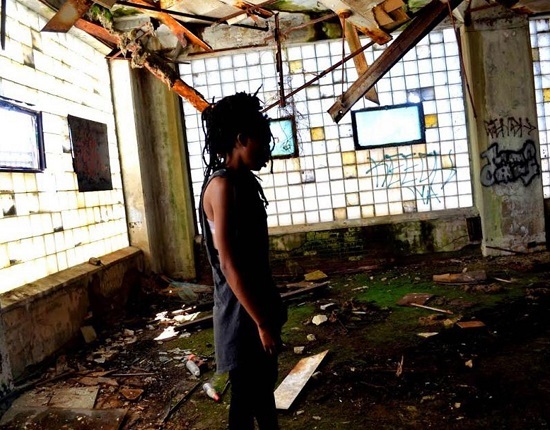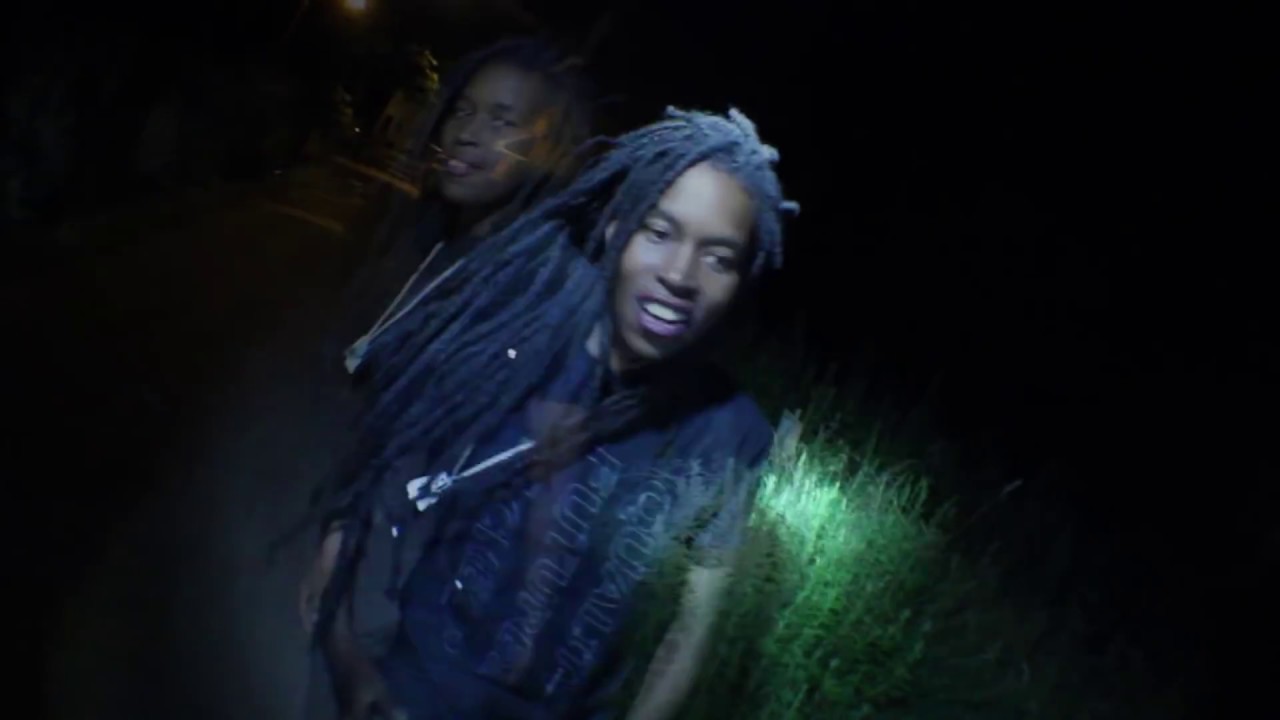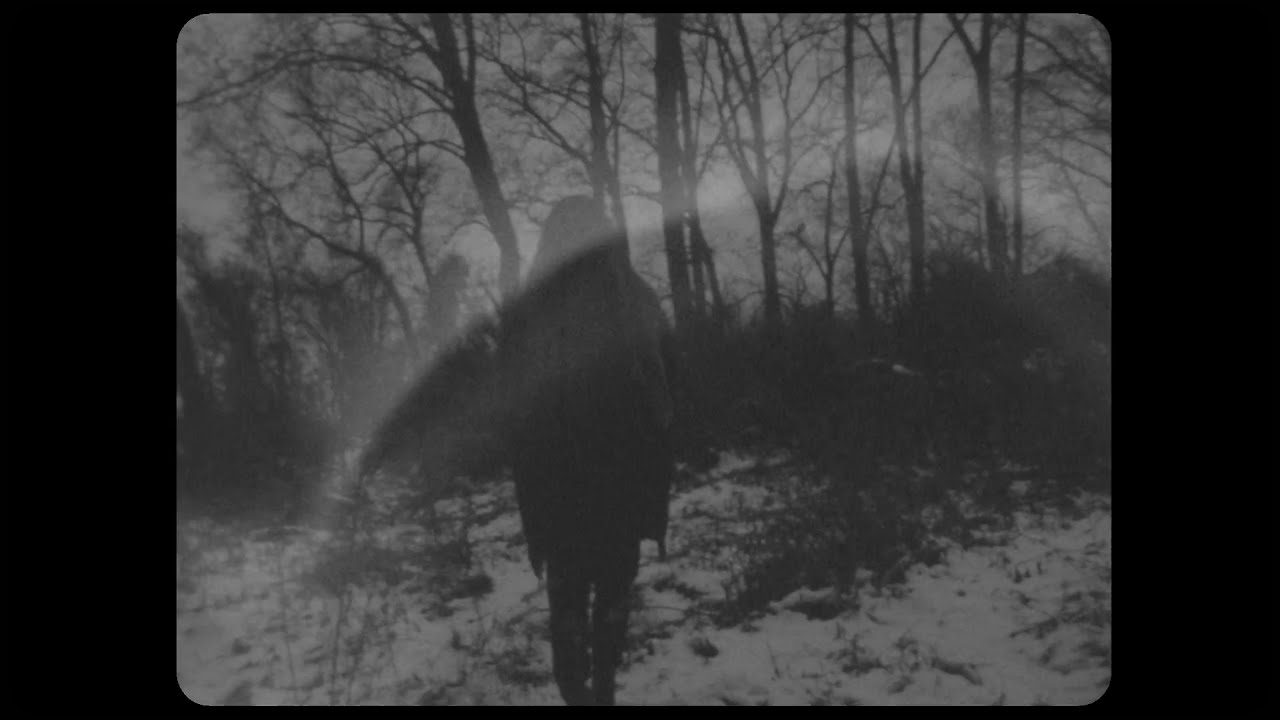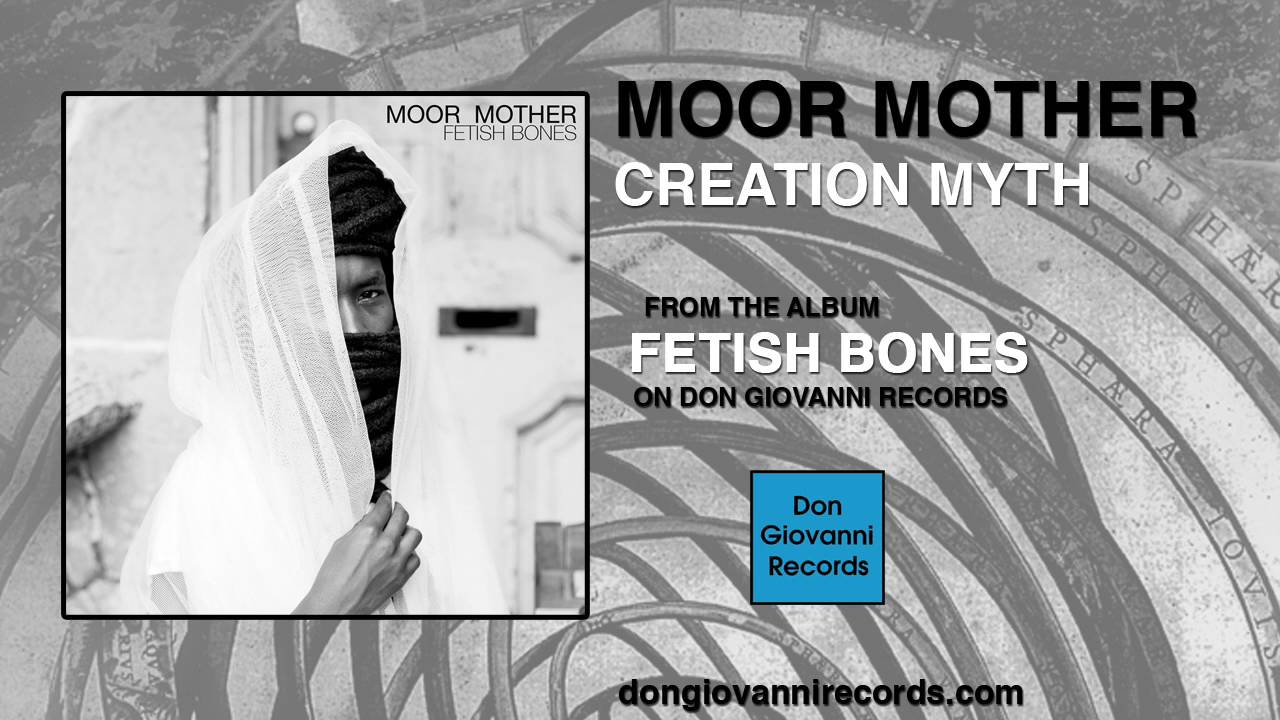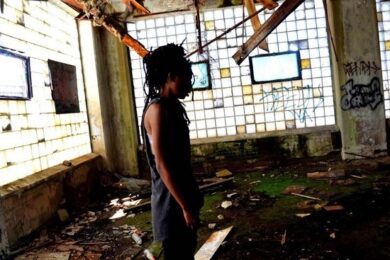Photo By Moor Mother
Camae Ayewa likes to feel out her audience on the night. "I shape what I do because I see maybe a bunch of younger people there," she says, "or I feel the sadness amongst the audience or this fear." Ayewa, who records and performs as Moor Mother, might not have a set list in advance; she might not even know which instrument she plans to use at a given point. Instead she reaches for the moment, choosing songs and instruments as she responds to it. Vast electronic soundscapes will merge with politically charged performance poetry, and no two sets will ever be the same. It is, as she says, punk in spirit.
It’s an unconventional approach, reflecting her beginnings in the punk band The Mighty Paradocs, that was mirrored on last year’s debut album, Fetish Bones, which followed a non-linear trajectory through space and time, exploring 150 years of history and politics, from the 1866 race riots in Memphis through to the present day, in a style she describes as "Low fi/dark rap/chill step/ blk girl blues/witch rap/coffee shop riot gurl songs/southern girl dittys/black ghost songs". As with her live performances, poetry and soundscapes came together (it was accompanied by a 122-page book of poetry) in a fascinating combination of lyrical content and experimental structure. Now the debut has been followed with a new album, The Motionless Present.
The principles of her music are put into practice, too, in north Philadelphia. Ayewa and her partner Rasheedah Phillips established the Black Quantum Futurism collective to bring together Afrofuturist frameworks and methodologies that propose "a new approach to living and experiencing reality by way of the manipulation of space-time in order to see into possible futures, and/or collapse space time into a desired future in order to bring about that future’s reality". That, in turn, led to the founding of the Community Futures Lab in north Philadelphia, an Afrofuturist space that offers artistic workshops, discussions, performances and housing resources to challenge gentrification. When not writing poetry or music, Ayewa runs the lab, researches or teaches.
Can you tell me more about the process of recording your first solo album? How did it differ to your work with The Mighty Paradocs?
Camae Ayewa: In The Mighty Paradocs there were five [of us] – we had to connect with five people in order to practise or to write a song. I wrote most of the songs but everyone had an input in it, so it certainly took a little longer. I wanted to create music in between [band] practices so I just started making songs with an iPad. I literally saved for a couple of months and just bought one with a bunch of virtual synths on it and I just started making two songs a day at the bare minimum. And then I had almost 200 of them, and I was, like, that happened really quick! And each time I’d do it, I’d get better.
I didn’t have anyone teaching me how to make beats or soundscapes, so I was just doing it on my own for the first time. It’s so funny because for the first couple of things I did, I didn’t even know how to fade out the songs, they all just like abruptly ended. Someone in an interview asked me, "What is this style you have where your songs abruptly end?" That’s not a style – I just didn’t know how to do it. Then I figured out how to do it. That’s how it progressed, with me just making mistakes and then just doing a better job on the next one.
You must have felt a real sense of achievement when it was completed. How did you choose which pieces to include from such a vast collection?
CA: I cried and cried. I really felt very isolated with my lack of [recording] knowledge – of just the fact I was teaching myself how to do it. I didn’t have anything to prepare myself for recording the album and it was one of the most frustrating things I have ever done. But to put my truth out there and to have people accept it, it makes me feel very good that I didn’t have to fetishise myself – I didn’t want to do any of that. That makes me feel good, that there’s still spaces or pockets where you can be yourself.
I wanted to have more poetry on the album, but picking the poems was very hard because I have so many. ‘Creation Myth’ was a poem that just really stuck with me and I felt it was important to read that one. The others were more organic because in the middle of making the album, my father passed away so there were some more obvious choices. I wanted it to [always] be more – even with the soundscapes I was like how many soundscapes can I fit in? But this is also an album, how many songs can I do? I originally recorded 55 minutes but I had to cut it down. It was really hard in that sense of [knowing] how much to do and just really trying to be even and balanced – a couple of soundscapes, a couple of poems.
Who inspired you poetically and when did you begin to write?
CA: I always remember writing poetry. I was writing a lot of stuff on love; I was really interested in the writing of Sonia Sanchez, Lucile Clifton and Amiri Baraka. That’s the kind of stuff I like to read. I really don’t read fiction books – I read research books and poetry. The poets that I like are invested in a lot of research so it also provides this more poetic reflection of what has happened or what was going on in a certain time-period.
Can you tell me more about the non-linearity of Fetish Bones and its time structure?
CA: It’s like how I got into punk rock. I expected hip hop to continue to be like Public Enemy and when it started to change to dance music, I was really surprised. I wondered, ‘What is happening here? Where do I continue to go to find music that is speaking about people that I know, music that I can be a part of?’ It didn’t take me to the future, it took me to the past: I found out about Bob Marley and that took me further back.
I feel like the journey of the messages that I’m trying to find naturally move away from this linear model of getting to the root of things. In the school system, they teach you a very strict script of your [African-American] history, and you have to find out the truth or find out what’s been left out of that script they’ve been teaching you – all of it is so retro-causal. There are so many reflections that I see in the present that are connected to the past. You start to really see how time and this linear time structure oppress people. I guess a lot of my learning comes through memory or remembering and research more than just listening or watching.
A lot of music that I listen to is by people who are dead. I’m also strongly connected to my family memories, like [their] singing in church. All the songs my family would play would scare me when I was younger but now, somehow, I love them. A lot of the people I grew up around were older so I could hear all these different types of music throughout time … time doesn’t feel like this linear progression and that interests me.
Do you still draw on the work from the punk part of your career?
CA: We were very political, probably too political! But I’m trying to get back to that. I’m not using songs [from that era], but when I was coming up with the solo stuff, I wondered how I could tap into how I was performing with my punk band. With punk you can do a flip, you can jump into the crowd – you can do whatever you want and you can be very in-your-face. But with the solo work, I’m playing electronics and I’m all by myself, so it needs a lot of focussing. I’ve been changing my solo show every performance. I feel the crowd out as much as possible; I like to walk around to see what the vibe is. Then I just make the set list right there on the night unless I’m performing in a theatre where it’s a little more formal. But if I have the chance to just do whatever I want, I do it that day.
I’m definitely one of those artists who is really hard on themselves but I’m getting much better where I’m just like whatever happens, happens. I know if I go in the crowd, anything is possible, anything could happen. I’m into the music, I’m losing myself and I’m surrounded by a bunch of strangers. I definitely take risks.
You use a lot of different instruments on stage. How come?
CA: I’m obsessed with instruments. Anything that is cheap that I can find anywhere, I’m just gonna get it. It was my dream to have instruments for so long. Once I could afford one, I think I got a trumpet, and then I traded it for a guitar that was broken but I didn’t know it was broken, but I was happy because that was my guitar for a bit. I’ll play anything but I couldn’t skill share with you – I just kinda play with it and have fun. I got some lap harps and all kind of just weirdo stuff that I collect and just try to play it.
Your album covers a vast amount of history going all the way back to the race riots of 1866. Was it a challenge condensing so much history into Fetish Bones?
CA: I studied every race riot that I could find – that was really the first part of writing the poem, doing all the research and reading and not just going a Google search one day and feeling like I had all the information. I was online, I was looking at books. In the room where I sleep, there’s a mini-library so we have a couple of hundred books there too. I was reading as much as possible to research it thoroughly. The flow of history happens naturally; it was a lot to condense but the way that it just flows was quite interesting. It’s a queer timeline that’s just not linear, but some of the same kind of things are happening again, some of the things could as well be recent events. It was just sad following the line of the research.
Your work is often described as political, as being protest songs. How do you combine art and politics in your work?
CA: I feel like a lot of energy around the protest song has changed. I remember when George Bush was in office. I remember those were some of the most lethal protests I’ve ever been to. I feel like now in Philadelphia, sometimes important messages get lost because sometimes so many groups all try to come in at once that the protest which [was initially] about one thing then becomes about five things. Voices get lost.
[Early in my career], I never thought I could talk to anyone out of City Hall. They have this art organisation and the National Endowment of Arts came to give a talk about a week ago and my partner from Black Futurism was on the panel. They were talking about how artists should just call City Hall, call their officials and tell them what kind of [political] art project they’re trying to do. I was like: "What?! Artists can call City Hall? City Hall cares about artists? I didn’t know this!" Just thinking of ways to take more political agency is inspiring. I’ve been a musician for a long time doing my own events because there were no other events that I felt would support the voice of my band. Now to be like,"Maybe I can call the city or call the mayor" – those thoughts never really came to me.
How does your new project The Motionless Present relate to Fetish Bones?
CA: I only had one month or just a couple of weeks to get The Motionless Present done. Fetish Bones took a whole year. Some of the poems were just made up right there in my home studio, just feeling what’s happening in the moment. It definitely has that really "now" kinda feel to it. Throughout my day or week or month or whatever, I’m taking in all this stuff. I’m doing all this research. I’m also invested within causes in my community – all that fills me up for when I’m going to make a song. It’s all on my mind. Just recently we had an event like a day ago about black women in trans youth at the Communities Future Lab and just from that event I was rewriting my new album. I rewrote my track list. I felt I needed to get more to the point. How can I be clearer, more straightforward about the issues I am really haunted or overwhelmed by or just like keeps coming to me? I go into a space and I’m not even there for long and people are already bringing me [new inspiration], just in natural conversation, just by what’s happening in that city. Of course, it is going to touch me and I’m going to write about it because I’m going to be thinking about that.
Can you tell me more about the Communities Future Lab?
CA: A lot of the neighbourhoods here in America are undergoing rapid redevelopment. The street that we’re by on Ridge Avenue was a popular street. People would ride their nice car up and down and you didn’t have to go down town. In a community, you have all your stores and everything that you need. So then there was a riot on the next street in the 1960s and the community never really bounced back. They even changed the name of the street, but in that renaming of the street, it creates an erasure of what has happened before.
In north Philadelphia, that’s just what’s happening – it’s always been this fight between universities buying up neighbourhoods and the poor. So we’re trying to collect oral stories of the past and create a time capsule or a database where this community can go and tap into this portal – tap into the stories of their neighbourhood. They took down 1,300 homes – that’s like a whole block and ultimately it changes the culture of the neighbourhood. It changes the historical record and I mean this is not like a new thing. WEB Dubois took note of what was happening in south Philadelphia – where people lived and what neighbourhoods were what. If he didn’t do that, I wouldn’t know that our hip street here was originally an African American neighbourhood.
Moor Mother plays OFF festival in Poland this August

